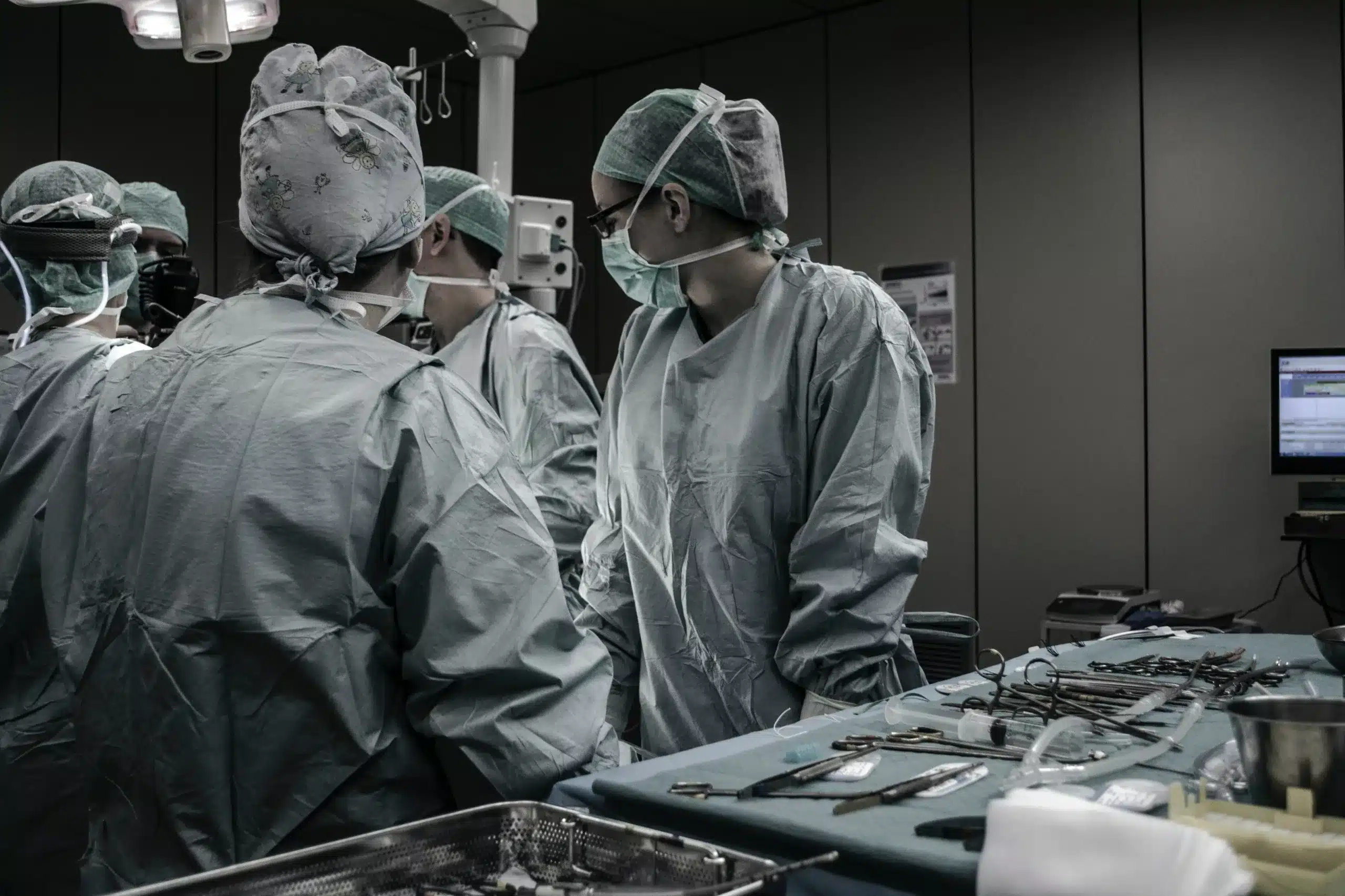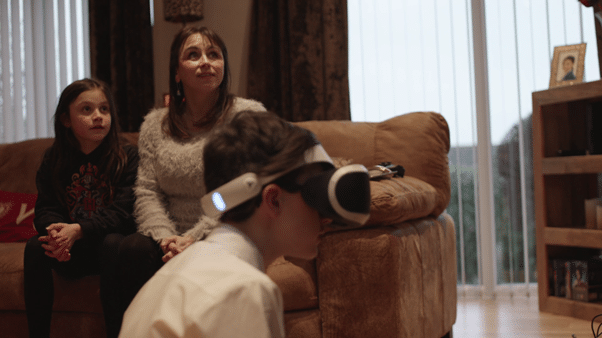
 " alt="">
" alt="">
Negligent surgery claims

Reviewed by
Peter Rigby - Director of Medical Negligence
We've got your Surgical Negligence Claim covered
- No win No fee
- Not just lawyers - real specialists
- No obligation
- UK's highest-rated medical negligence solicitors
Surgical Negligence Claims
Needing surgical intervention for an illness or severe injury is common among adults, and for most, the process is straightforward. However, surgery can come with stress as most surgical procedures carry risk. The majority of surgeries performed are completed without any complications, as the doctors and medical staff who you entrust with your medical care are highly trained and fully capable of getting you on the road to recovery.
However, there are instances when things don’t go as planned when a surgery is required. Complications can take place through no fault of your surgeon or due to a negligent mistake. When a complication that occurs during or after surgery is the result of poor-quality care or negligence, you and your family may be entitled to compensation from a negligent surgery claim.
Find out if you
have a claim
Take the 10-second claim test
Free Advice
03300 080 352
claim form
We're the highest-rated No Win No Fee medical negligence solicitors on Trustpilot
What is a surgical negligence claim?
Surgical negligence refers to the event in which a mistake is made during the process of a surgical procedure. Mistakes made during or even after surgery can have devastating effects. Injuries can range from being minor to fatal in some very unfortunate cases. Injuries caused by inadequate or poor care from a surgeon or healthcare professional should be compensated. This is when a surgical negligence claim should be made.
Types of negligent surgery claims
While surgical negligence takes place in less than 1% of all surgery procedures throughout UK hospitals, there are several circumstances under which mistakes are common. These include:
- Performing a wrong site surgery
- Failed surgical procedure
- Incorrect surgical procedure
- Unnecessary surgery
- Delay in surgery
- Failure to remove unintended foreign objects during surgery
- Tissue damage – such as damage to veins and nerves
- Hernia surgery claims – if you’ve suffered damage (such as nerve or organ damage) caused by hernia surgery, or if your hernia was made worse during surgery, you could have a claim.
- Nerve Damage Claims
- Orthopaedic Claims
- Cosmetic surgery
- Spinal surgery
Having a surgical procedure performed inadequately may also lead to perforated organs and severe infections internally or externally, or scarring.
Scarring negligence can happen due to surgical errors, for example where excessive damage is done to the skin during surgery, or if you’re given improper care after surgery which leads to an infection.
Each of these supplemental issues cause a great deal of harm to the body, and can have a lasting impact on your ability to live a quality life. When any of these surgical errors takes place, you or a loved one have the right to get answers and potentially receive compensation for complications caused by surgical negligence.
Who pays for negligent surgery claims?
Your family and your loved ones often pay the high emotional price of negligent surgery when a doctor has performed an operation such as unnecessary surgery, a wrong site surgery, or a negligent delay in surgery occurred; however, making a claim with our help takes place on a no win, no fee basis which takes away your financial risk. The emotional and financial losses from surgical negligence can be profound, including a myriad of general and special damages. If you have suffered from surgical negligence due to a failure to remove unintended foreign objects during surgery or other another devastating surgical outcome, you may make a claim for compensation to pay for pain and suffering, any ongoing treatment required because of a wrong site or failed surgery, necessary equipment needed in the home post-procedure, and psychological damage that is common after surgical complications.
Billions have been spent on claims for medical negligence throughout the UK, but starting a claim for surgical negligence carries with it no financial risk for you. That’s because we work with patients and their families on a no win, no fee basis, handling the total claims process for you, from understanding what happened to gathering the appropriate records and documents, and ultimately getting you the compensation you deserve.
What can I expect when I make a claim?
When starting the surgical claims process, it is first necessary to understand you do have a time frame in which you must make a formal claim. For most cases, patients or their loved ones can bring a case for surgical negligence within three years of the incident taking place or from when the illness or injury of a failed or wrong site surgery was recognized. If you’re not sure about the timing for your situation, you should certainly call us and we can confirm. You may take legal action with our help if you have experienced negative outcomes of surgical negligence, or if you are the next of kin of a patient who has died or cannot start a claim themselves due to incapacity. No matter who is starting the claims process for surgical negligence, it is in your best interest to contact us for legal guidance as soon as you are able, and there is no financial risk in doing so.
Throughout the claims process, you will be asked to recount your experience several times so that an accurate account of what took place can be documented and verified. The claims process for surgical negligence takes certain legal expertise to get you the compensation you deserve, and we work with you and your loved ones on a no win, no fee basis to ensure that happens in a timely manner.
Our experience covering negligent surgery claims
At Patient Claim Line, our expertly trained medical solicitors know well the burdensome toll that making a surgical negligence claim can place on you and your family. Because we work with one in 10 medical mistake claims cases in the UK, we understand what it takes to get you through the process without causing unnecessary turmoil in your day to day life. Our first goal is to listen to what you experienced, and then get to work on obtaining the compensation you need and deserve.
Information we need to process your negligent surgery claim
Whether your bad experience with the hospital was due to a wrong site surgery, an unnecessary surgery, a delay in surgery, or a failure to remove unintended foreign objects during surgery, we will need detailed information regarding what took place. That includes when the surgery happened, what complications arose during or after the operation, and what remedies you sought to minimize damages incurred. We will work directly with the hospital with your authorization to secure the medical records and notes that explain the circumstances further, and from there we will begin the negotiation process to settle your claim.
If you’re unsure if you have a reason for making a surgical negligence claim, you can start by submitting an enquiry online, calling to speak with one of our expert solicitors, or by taking our simple 30 second claims test. Once we have listened to your story, we can better determine what your next steps should be in terms of legal action. Contact us today if you or a loved one has experienced the outcomes of surgical negligence and you want assistance getting the compensation you deserve.
Why Choose Patient Claim Line for your Surgical Negligence Claim?
Not just lawyers — medical negligence experts
Patient Claim Line was established in 2014 and consists of a team of medical lawyers specialising in cancer negligence and general medical negligence claims.
At Patient Claim Line we have more than 100 solicitors with a combined experience of over 400 years and they will work on your behalf to achieve the best result possible for you.
It’s not enough to use a solicitor who sometimes covers medical negligence. You need someone who knows this area through and through. That is what the solicitors here at Patient Claim Line do. They deal exclusively in this area of law and are experts in the field.
Frequently asked questions about Surgical Negligence Claims
Our expert legal team answer your questions about making a Surgical Negligence Claim
You must make a surgical negligence claim within three years of the ‘date of knowledge’ in which you became reasonably aware that you suffered negligence during or after surgery.
In some cases this time limit can be flexible. If you or the person involved was under the age of 18 at the time of the medical mistake, the 3-year time limit will begin from their 18th birthday, running until their 21st birthday.
Yes, it is possible to make a surgical negligence claim on behalf of someone who suffered an injury. You may put forward a claim on somebody else’s behalf if they are unable to do so themselves. This may be in unfortunate circumstances in which a loved one has lost their life due to surgical negligence or if the injured party does not have the mental capacity to put forward a claim themselves.
We helped a client to claim £9,250 in compensation against negligent surgery that left him severely injured. Every surgical negligence claim is different and the amount of compensation received per claim will vary. When calculating compensation, many factors are considered as part of the claims process. Factors such as the severity of the injury and the effect that this has had on the injured individual’s life.
Meet our Surgical Negligence Team
Case Study
Sarah's Story
"Now we have peace of mind"
My husband, Nick, went back and forth to the doctors for a long time and tried everything the doctor recommended. But his illness got worse, to the point that he was in agony.
In the end we got so desperate that we asked for a referral. The doctor was reluctant, so we had to consult a private hospital. That’s when we found out there was a tumour. It took years from the onset of his illness to finally start cancer treatment.


He used to be a man with a lot to live for, but in the end he was in so much pain that he withdrew from the family. He became angry that nobody had helped him sooner, and the legal team were able to give him the validation that he was desperately seeking. The NHS confirmed if they had done more, Nick would still be alive today.





